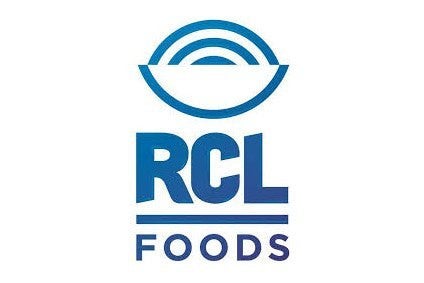
RCL Foods, the South African food group, has warned the country’s poultry industry is in “crisis”, with the company admitting it is weighing up “all options” as it looks at its own business in the sector.
The company yesterday (30 August) booked a 12% fall in annual underlying earnings, hit by a 62% slump in EBITDA from its chicken arm.

Discover B2B Marketing That Performs
Combine business intelligence and editorial excellence to reach engaged professionals across 36 leading media platforms.
RCL Foods said South Africa’s poultry market was “massively over-supplied” amid a “surplus” of domestic volumes and “record levels of dumped imports”. The company said it has sought to steer its chicken business away from the commodity market, where it says most imports are targeted, towards supplying the quick-service restaurant sector. However, RCL Foods said growth in that channel had “muted” for some customers, which meant overall bird numbers had to be reduced further to limit additional consequential volume.
Meanwhile, the group said its chicken business had more than halved its production of individual quick frozen units. “Without this action, the oversupply in the market would have been even greater and the impact on profitability more severe,” the company claimed. “RCL Foods believes that the local poultry industry is in a crisis. As a consequence, the board is forced to re-look at all options in evaluating our chicken business model.”
The group warned it is also weighing up the need for an impairment of assets. “A restoration of normal trading conditions is required for the poultry industry in South Africa to survive. A return to adequate profitability is dependent on the local industry returning to relative supply/demand balance, of which the successful implementation of import tariffs is one part. An impairment will need to be raised should the supply/demand equilibrium not be restored or, despite the management interventions, there is no meaningful improvement in the chicken business unit’s profitability.”
RCL Foods said it had made an application for a 37% import tariff on bone-in chicken products from the EU.

US Tariffs are shifting - will you react or anticipate?
Don’t let policy changes catch you off guard. Stay proactive with real-time data and expert analysis.
By GlobalDataThe company’s group headline earnings from continuing operations fell 11.9% to ZAR849.7m (US$58.8m). Headline earnings per share from continuing operations were down 12.2% at 98.5 cents. Earlier this month, RCL Foods warned its headline earnings per share from continuing operations would be lower than a year earlier, hit by an impairment on its milling business and the effects of the recent drought on its sugar and chicken operations.
Group EBITDA was down 20.6% at ZAR1.8bn. RCL Foods said its commodity procurement strategy hit its EBITDA to the tune of ZAR80.6m after entering long foreign exchange positions in the last quarter of the year and an appreciating rand exchange rate at the year-end.
The EBITDA from RCL Foods sugar and milling arm fell as sugar volumes declined amid the drought conditions in South Africa. However, EBITDA from RCL Foods’ groceries unit, which markets products including peanut butter, bakery lines and pizza, rose 19.9%.
RCL Foods’ group revenue rose 6.8% to ZAR25bn. Despite the pressure on the company’s chicken arm, RCL Foods said revenue from its consumer division grew 10.1%. Sales from sugar and milling increased 5.6%.
Domestically, RCL Foods said its focus is on “accelerating growth in higher-margin, added-value categories, while maximising our core, which means that the commodity components of our basket will grow smaller over time on a relative basis – although they remain a key platform for growth into Africa”.





